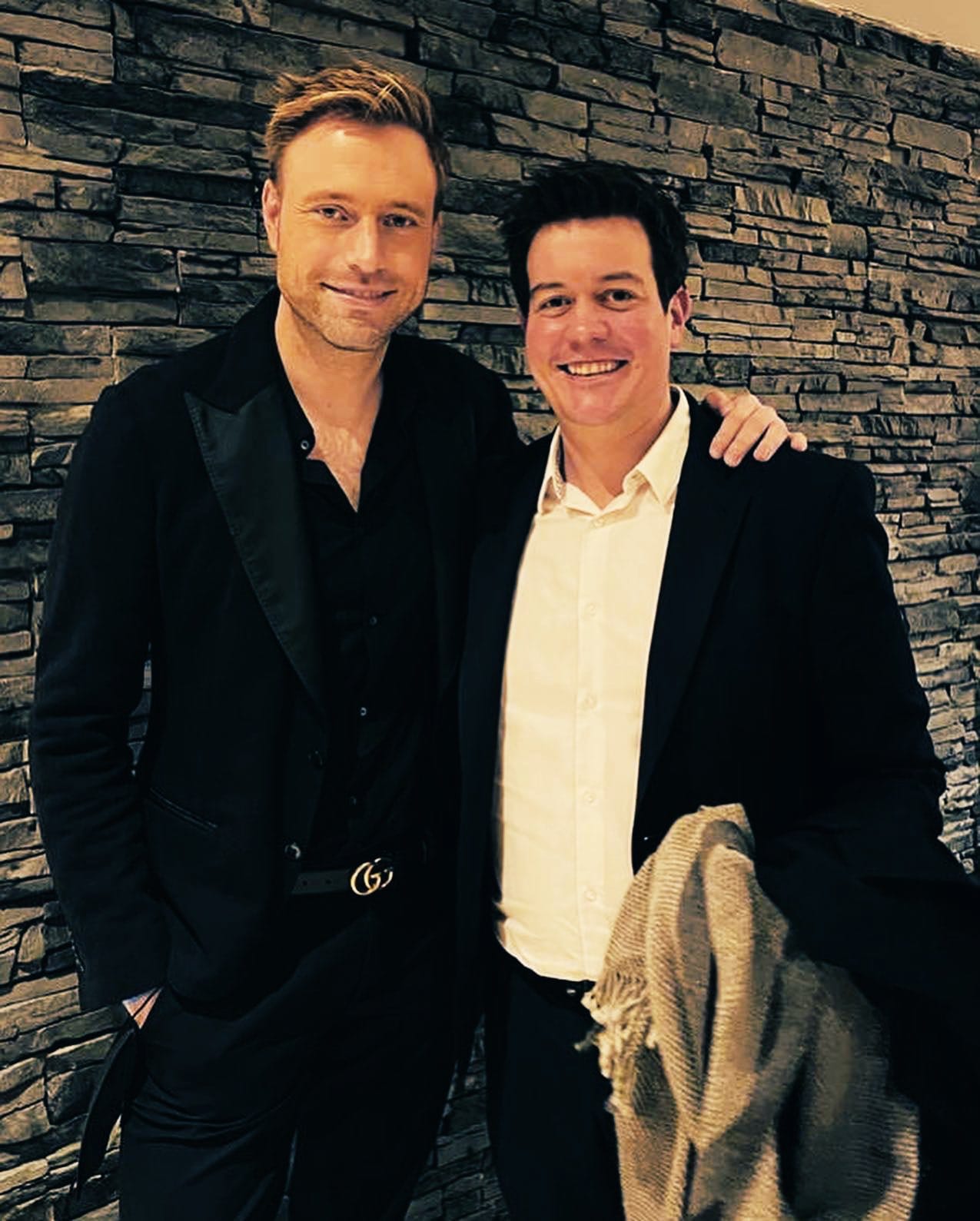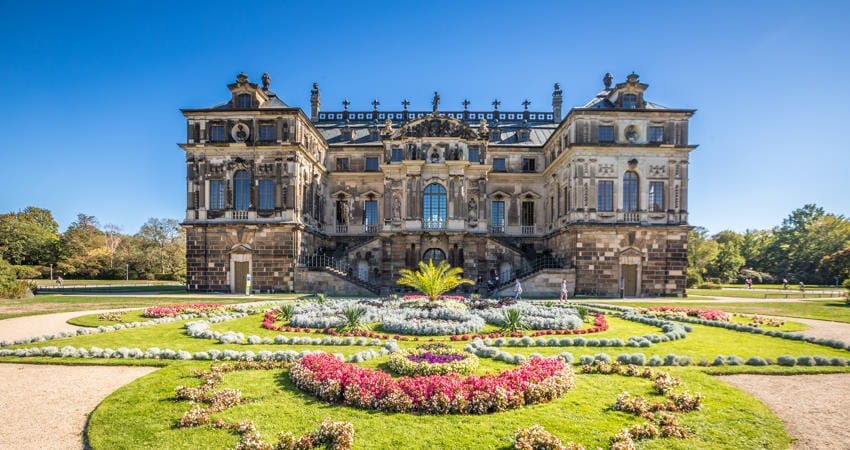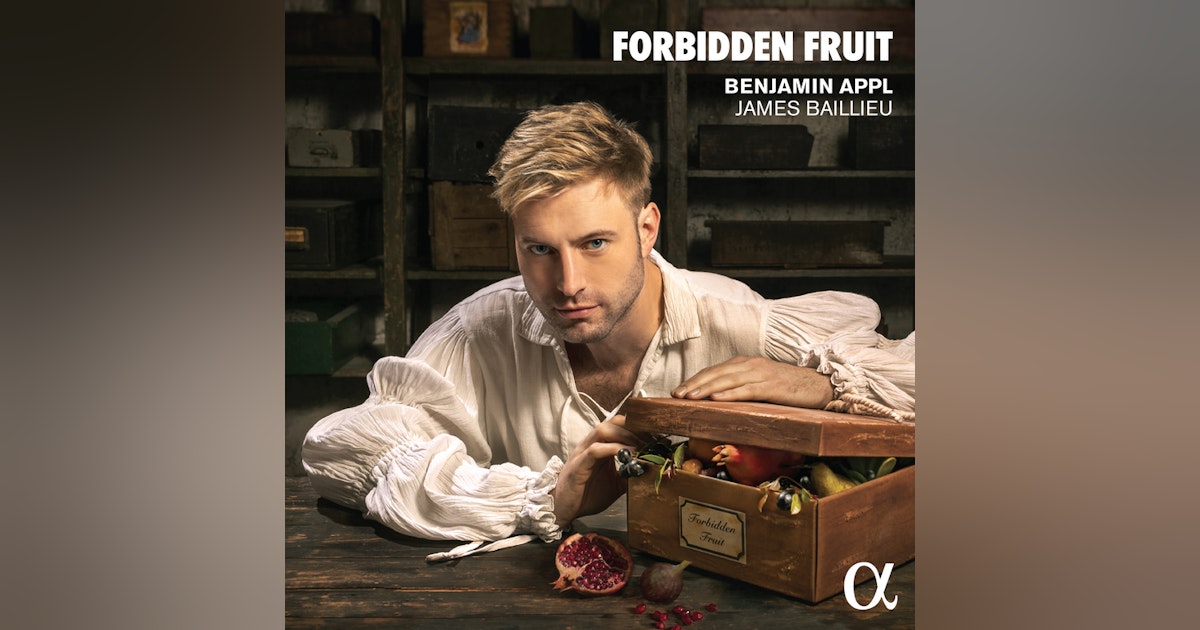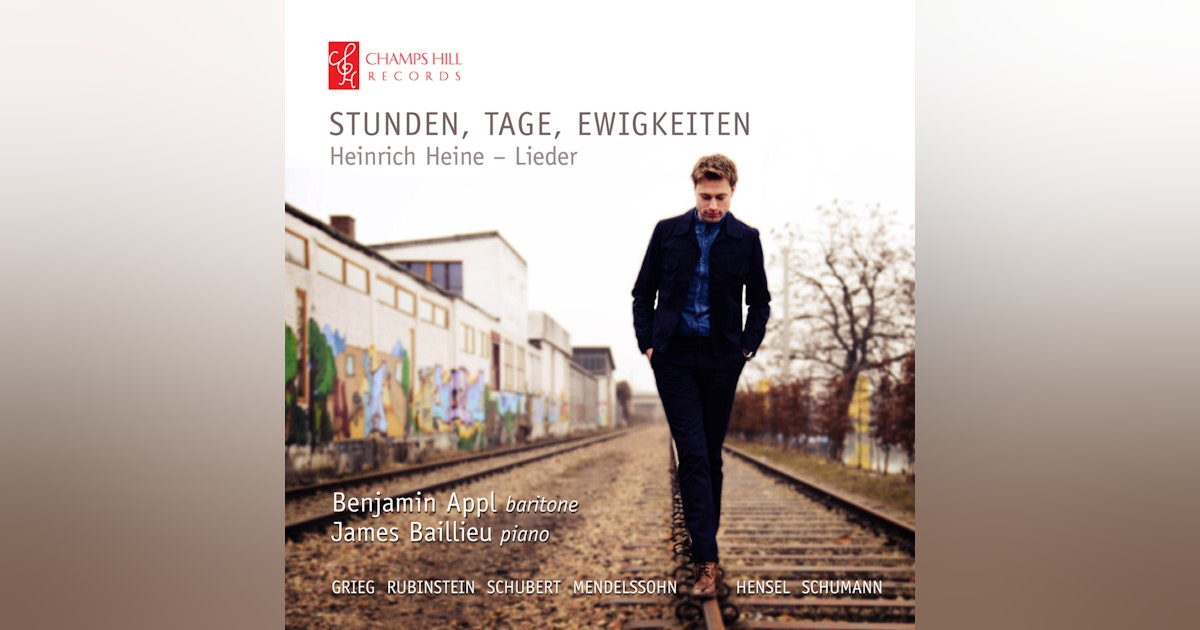Heinrich Heine. Paris. Musik: Dresden Festspiele 2025 (I)

Heinrich Heine. Paris. Musik Benjamin Appl (baritone); James Baillieu (piano); Barbara Auer (narrator); Jens Harzer (narrator); Helmut Butzmann (concept). Palais im Großen Garten, Dresden, Germany, 12.06.2025

Lieder with readings might be an Appl preference, when one considers his Alpha Classics disc, again with pianist James Baillieu, Forbidden Fruit. Here, in the format of songs and words, was an examination of post Heinrich Heine, a poetic voice so important to Lied composers, and specifically his time in the land that was seen as ‘the Fatherland of champagne, and the Marseillaise’. His poem, ‘Du bist wie eine Blume’, has been set to music some 400 times, and we heard one of them on this evening: that by Liszt (S 287), a magnificently perfumed song, beautifully rendered here.
The concept of the evening was masterminded by Helmut Butzmann under the subtitle of ‘... ‘this sounding flood of sin’ (... diese klingende Sündflut). It seems integrally linked with Appl's Champs Hill disc, Stunden, Tage, Ewigkeiten (Hours, days, eternities), an all-Heine disc where one will findmany of the songs from this recital.
A detailed and sometimes amusing account of Heine, Paris and music in Barbara Auer and Jens Harzer’s characterful recitations led to gem after gem of music. This was not a short evening – 7pm-940pm - but it was aa rewarding one. Texts were (generally) projected behind the singer, with appropriate depictions of the composers, while Auer and Harzer sat together on a desk at the side. From Liederkreis, Op. 24, ‘Schöne, Wiege, meiner Leider,’ an outbreath of expression containing significant angst. How characterful was Appl in Schumann’s famous ‘Die beiden Grenadiere,’ with its line, ‘Begrab mich in Frankreichs Erde’ (Bury me in France’s earth) and its blatant, but superbly placed, quote from the Marseillaise. But Baillieuu reminded us of what is so special here: the turn in harmony after the song’s final words, the singer so firm, then the piano’s sudden questioning interiorisation.
Interested readers who speak German might be interested to know that SWR-Kultur broadcast a five-part series, Die schöne Zauberstadt – Heine in Paris in 2024 (Heine arrived there in 1813).
The narration reminded us that Schubert’s darkest songs set Heine, and so we heard ‘Der Doppelgänger’ from Schwanengesang, and how powerful Appl’s delivery, from the hushed opening ‘Still ist die Nacht’ (The night is still) to a truly chilling rendition of the centrally-placed ‘vor Schmerzens Gewalt’(in anguish, referring to the wringing of hands). So strong, so unforgettable.
Dynamically different was ‘Der Atlas,’ again from Schwanengesang, full of power (although not eclipsing Sir John Tomlinson’s performance, albeit sung in English, at Wigmore Hall). Here's Appl and Bailieu on Champs Hill:
How lucky to hear another setting of the two grenadiers. I avoid the German for a reason: the composer was one Richard Wagner, who set it in French as ‘Les deux grenadiers’. It is WWV 60, from 1839, and some readers may indeed know it in German, as Hermann Prey performed it as such with pianist Leopold Hokanson:
It is dedicated to Schumann. This being Wagner, it is not short. Interestingly, for its date, it sounds much more like later Wagner. It is comparisons like this, sung by the finest singers and conttextualised via Auer and Jens Harzer’s characterful readings, that really enrich an audience. And yes, RW could not resist the ‘Marseillaise’!
It was Liszt in various forms, and Wagner, that closed the 75-minute first half. Another perfumed song, first, via Heine of course: Du bist wie eine Blume, S 287, a song of great perfume and elusiveness, sung with a golden thread of melody from Appl. ‘Die :Loreley,’ S 273 offered hints of Tristan here before a shift to Wagner himself, ‘Wie Todesahnung’ (with a slowly, relished ‘holde Abendstern’); it was the end of the Liszt B-Minor Sonata that closed the concert’s first part though, tenderly played by Baillieu.
The briefer second half began with music, not speech: Clara Schumann’s Heine setting, ‘Sie liebten sich beide’ (which obviously brings up certain questions ...), the second of the six Lieder, Op. 13, the piano’s gestures seem replete with conflicted longing. Longing, not so conflicted but now more of a memory, was represented by Chopin’s posthumous C sharp-Minor Nocturne (B 49,) a moment to relish Baillieau in the spotlight. (curiously, just listed as ‘Nocturne’ in the programme leaflet).
From Clara to Fanny: Fanny Hensel here, Fanny Hensel-Mendelssohn or Fanny Mendelssohn alternatively, her ‘Warum sind denn die Rosen so blaß,’ Op. 1/3, a nod to Fanny Helsel’s time in Paris along with her ‘Schwanenlied’, Op. 1/1 (this Op. 1 again comprises six songs). Perhaps the former is not so inspired as a piece; ‘Schwanenlied’ however is a melodic stream, beautifully rendered by Appl and Bailliaeu.
Here's the Champs Hill recording of Op. 1/3:
In between came Chopin’s arrangement of Beelini’s ‘Casta Diva’ from Norma. Chopin’s debt to Bellini is well known, and nowhere more evident, perhaps, than in his Nocturnes; Bailieu’s performance was lovely (if you want to hear the arrangement, here's Yunchan Lim playing it as an encore in Boston)
The Fanny Helselt pieces might not be so well known; but Felix Mendelssohn’s ‘On the wings of song’ (‘Auf Flugeln des Gesanges,’ Op. 34/2), definitely is. It says much that Fanny’s ‘Schwanenlied’ suffered not a jot in proximity; neither did music by one the most under-rated composers around: Pauline Viardot-Garcia. Her life is astonishing, her music no less so. Nice to see there is a catalogue of her works: we heard Das ist ein schlechetes Wetter, which is VWV (Viardot Werk Verzeichnis) 1054. The song was published in 1870; Baillieu was superb in the difficult piano part.
It was fitting to close, of course, with projected drawings of Heine's death bed, and with music by (Robert) Schumann: the solo piano ‘Der Dichter spricht’ (Kinderszenen. Baillieu at his most sensitive), and ‘Der alten bösen lieder,’ from Dichterliebe, to total black on the screen. Unforgettable, Appl’s voice both beautiful and telling.
Here's the Champs Hill recording, wonderful and yet a mere shadow of Dresden:
A stunning evening, instructional yet totally musical satisfying.
Forbidden Fruit is available on Amazon here;' Stunde, Tagen, Ewigkeiten is available here.




